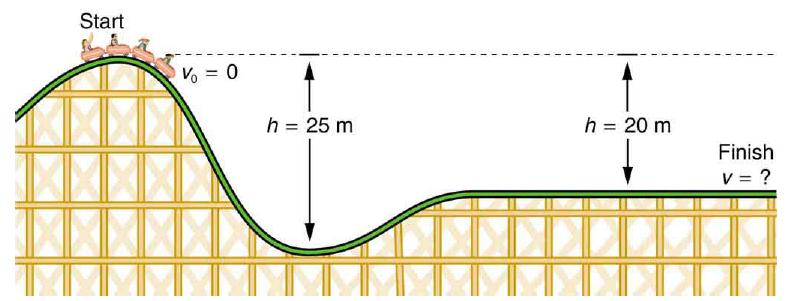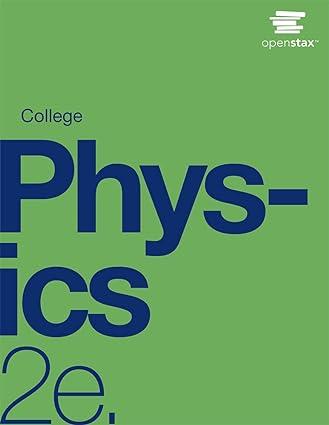In Example 7.7, we found that the speed of a roller coaster that had descended 20.0 m
Question:
In Example 7.7, we found that the speed of a roller coaster that had descended 20.0 m was only slightly greater when it had an initial speed of 5.00 m/s than when it started from rest. This implies that ΔPE >> KEi. Confirm this statement by taking the ratio of ΔPE to KEi. (Note that mass cancels.)
Data given in Example 7.7
(a) What is the final speed of the roller coaster shown in Figure 7.8 if it starts from rest at the top of the 20.0 m hill and work done by frictional forces is negligible?
(b) What is its final speed (again assuming negligible friction) if its initial speed is 5.00 m/s?
Strategy
The roller coaster loses potential energy as it goes downhill. We neglect friction, so that the remaining force exerted by the track is the normal force, which is perpendicular to the direction of motion and does no work. The net work on the roller coaster is then done by gravity alone. The loss of gravitational potential energy from moving downward through a distance equals the gain in kinetic energy. This can be written in equation form as![]() Using the equations for PEg and KE, we can solve for the final speed v, which is the desired quantity.
Using the equations for PEg and KE, we can solve for the final speed v, which is the desired quantity.
Step by Step Answer:






